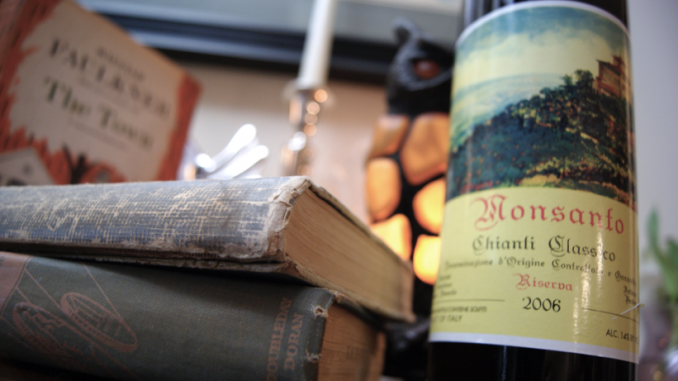
Ah, organic wine. Those of us who are against GMOs take comfort in knowing that our wine is, at the very least, organic. Or is it? Now, some devastating research has revealed that Monsanto’s tentacles have made their way into ‘organic wine’ in California.
According to TheInertia.com:

BYPASS THE CENSORS
Sign up to get unfiltered news delivered straight to your inbox.
You can unsubscribe any time. By subscribing you agree to our Terms of Use
Latest Video
Recent tests show that this is the case with Monsanto’s Roundup weedkiller. This herbicide is produced by Monsanto, and it is used by farmers as a heavy-duty herbicide. Samples of wine from 10 different vineyards indicate the presence of Roundup’s active ingredient, glyphosate, in every sample. It should be noted that glyphosate is also used in other herbicides, but recent press calls out Monsanto because Roundup is the most widely used herbicide containing glyphosate.
It’s one thing to have herbicides on your grapes, but it’s quite another to have those chemicals make their way into your glass of wine. What’s incredible about the test results is that even wine made from organic grapes tested positive from glyphosate. Although organic wines contained significantly less glyphosate, the fact that the end product still contained chemicals not used in the grape growing process is pretty astounding. This demonstrates that herbicide drift may be a more serious problem than currently believed.
The test results indicated that conventionally grown wine contained 28 times more glyphosate than organic wine; in some cases the levels of the herbicide reached 18.74 ppb. This is somewhat of a win for organic wines, but it indicates a serious issue in the winemaking process. Vineyards using Roundup or other glyphosate-based herbicides should be doing more to protect consumers from accidentally ingesting unwanted chemicals. If vineyards are already making efforts to protect consumers, perhaps these methods aren’t as effective as previously thought.
Although the test results carefully omitted the names of the brands, the samples tested a wide range of vineyards in Northern California. The samples came from both large and small vineyards. What’s also deeply concerning, is that the wines tested came from Napa Valley, Sonoma, and Mendocino County: regions known for their exceptional wine. These are not just locally consumed wines either; they are distributed across the country and even exported internationally.
Despite Monsanto’s firm stance that glyphosate is safe and poses no health risks to humans, other research indicates that the ingredient could be harmful. The World Health Organization declared glyphosate a probable carcinogen just last spring. Although there is a heated debate about whether there is enough evidence to confirm that the chemical poses a risk, there certainly is not enough evidence to say that it poses no risk. Especially when one study demonstrated that tiny amounts of the substance have been shown to stimulate the growth of breast cancer cells. Some even speculate that this could be tied to the fact that breast cancer rates in Napa, Sonoma, and Mendocino counties are 10-20%higher than the national average.
Clearly, more research needs to be done to provide conclusive information about the effects of glyphosate in wine, the winemaking process, and herbicide drift. No doubt, California wineries will do what it takes to make their wines safe; it’s just a matter of figuring out how to do so. However, in the meantime, I may be switching to beer.


